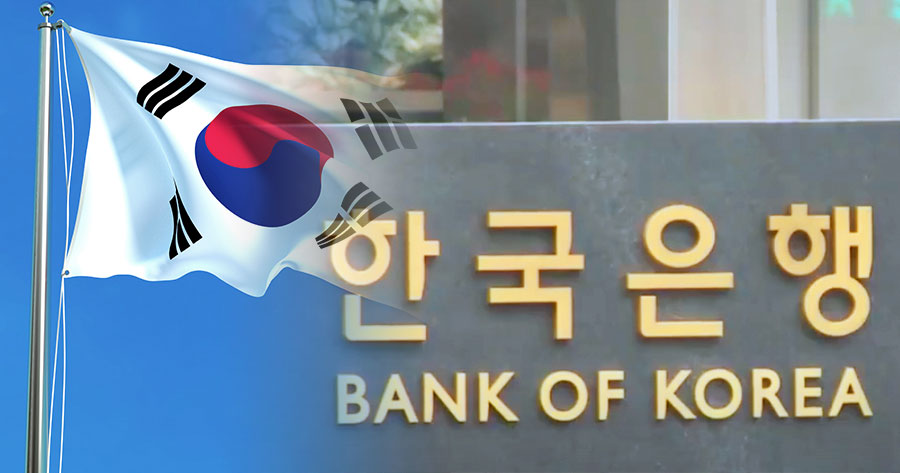South Korea has reinstated its short-selling activity across all securities on Monday as it aims at invigorating the capital market with an influx of foreign investments eager for enhanced liquidity and risk management.
The blanket ban on short selling, which had been in place since the initial wave of COVID-19, was originally implemented to quell the pandemic-induced financial turbulence. Although a partial revival was made in 2021, permitting limited short sales on selected Kospi 200 and Kosdaq 150 stocks, the practice faced renewed suspension in 2023 amidst controversies over illegal naked short selling by foreign banks.
South Korea’s financial regulators have overhauled short-sale regulations and introduced an electronic monitoring system to deter any recurrence of illegal naked short sales.
According to the announcement from the South Korea’s Financial Services Commission, short selling becomes available for institutional investors that have set up required computer systems intended to prevent naked short selling (or those placing short sale orders after entering borrowed stocks into their accounts). Institutional and corporate investors can engage in short selling only if they have established relevant internal control standards. In addition, securities companies are obligated to submit short sale orders only after verifying the establishment of required computer systems and internal control standards by institutional and corporate investors.
The naked short selling detecting system (NSDS) has been established at the Korea Exchange (KRX) and has been running simulations this month after conducting linked tests with institutional investors’ own computer systems from January to February. At the time of this release, 21 institutional investors (the number is tentative)3 that made up about 81 percent of all short sale transactions prior to the initiation of the short sale ban on November 3, 2023 are participating in the simulation.
Thus far, the simulation outcome shows that violation detection mechanisms are functioning properly. 62 institutional investors (the number is tentative)—which accounted for about 4.6 percent of all short sale transactions before the ban was initiated—have chosen the method of engaging in short selling by submitting short sale orders after entering borrowed stocks into their accounts, thereby removing the potential of naked short selling activities (all other institutional investors will resume short selling after developing required computer systems).
Therefore, at the time of this release, a total of 83 institutional investors that made up 85.6 percent of all short sale transactions prior to the initiation of the ban have established required mechanisms designed to prevent naked short selling and will be able to resume short selling from March 31.
From March 31, the stock borrowing conditions for short sellers will be made identical for both institutional and retail investors.
Institutional investors’ stock repayment period will be limited to 90 days and renewable for a maximum of 12 months. With the completion of required system modification at the Korea Securities Depository and the Korea Securities Finance Corporation, since November last year, this new rule on repayment period has been already put in place for market makers and liquidity providers that have been exempted from the short sale ban. When short selling becomes reinstated on March 31, this new rule on stock repayment period will apply to all securities lending intended for short selling.
Retail investors’ cash collateral ratio will be lowered to 105 percent, the same level currently in place for institutional investors. The restriction on repayment period—90 days and renewable for maximum 12 months—will also be equally applied to retail investors. As of now, 28 securities companies have made modifications to their systems to accommodate the change in retail investors’ cash collateral ratio, and this will take effect from March 31 along with the restriction on repayment period.
Naked short sale activities carried out in a deliberate manner after the resumption of short selling on March 31 will be subject to enhanced criminal penalties. Other rule changes regarding the acquisition of convertible bonds (CBs) and bonds with warrants (BWs) by short sellers will also go into effect as previously planned.
First, the monetary penalty imposed on naked short sale activities carried out in a deliberate manner will increase to four to six times the amount of unfairly gained profits from the previous level of three to five times the amount of unfairly gained profits. If unfairly gained profits amount to KRW5 billion or more, an aggregated punishment of imprisonment can be imposed. In addition, as in the case with the currently existing rule on the acquisition of new shares in capital increase with consideration, short sellers will be prohibited from acquiring CBs and BWs issued by the same company from the time the company discloses its CB or BW issuance plan until the time it discloses its issue price.
The disclosure requirement on investor’s net short position balance has been expanded since December 2024, and as a result, investors with a net short position balance of 0.01 percent or KRW1 billion or more of total issuance volume are already subject to the disclosure duty.
In the meantime, the diversified sanctions mechanisms brought against those committing naked short sale or unfair trading activities—which include measures prohibiting them from trading financial investment products, barring them from holding an executive position at companies, and freezing account activities—are set to go into effect from April 23, 2025.





